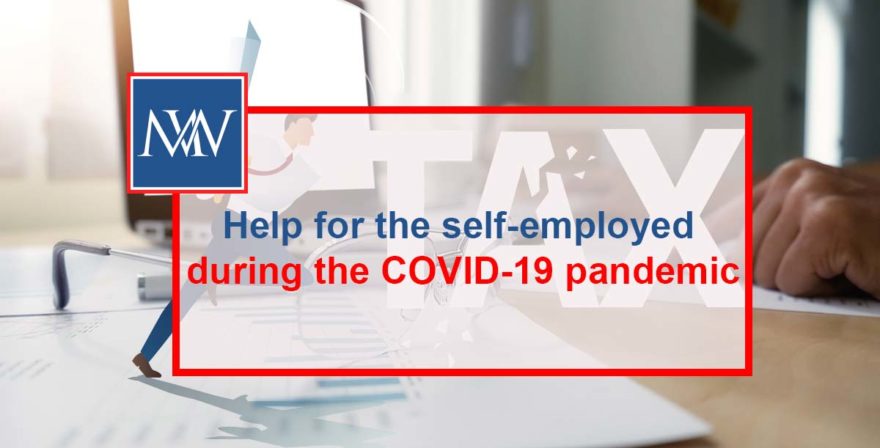
Help for the Self-Employed During the COVID-19 Pandemic
The self-employment income support scheme (SEISS) provides financial help to self-employed traders and partners in partnerships who have lost income as a result of the COVID-19 pandemic. Not all self-employed traders can benefit – it is only open to those with profits from self-employment of £50,000 or less who have filed a 2018/19 tax return.
The scheme will provide eligible traders with a grant equal to 80% of average profits for three months, capped at £2,500 a month. The grants should be paid in early June 2020.
Who is eligible?
To qualify, the individual must:
- have submitted their self-assessment tax return for 2018/19 by 23 April 2020;
- traded in 2019/20;
- be continuing to trade when they claim the grant, or would be except for the Coronavirus pandemic;
- intend to continue to trade in 2020/21; and
- they have lost profits due to the Coronavirus.
Traders who had not submitted their 2018/19 tax return by 23 April 2020 are not able to claim a grant under the SEIS.
£50,000 profit limit
The grant is limited to traders whose trading profits are not more than £50,000 either for 2018/19 or on average for the three years 2016/17 to 2018/19 inclusive. This if a trader has profits in excess of £50,000 for 2018/19 they can still qualify if their average profits over 2016/17, 2017/18 and 2018/19 are less than £50,000.
Profits from self-employment must comprise at least 50% of the individual’s income.
Amount of the grant
The grant is based on average trading profits over the following three tax years:
- 2016/17;
- 2017/18; and
- 2018/19.
The grant is worth 80% of the average trading profits (capped at £2,500 per month) for three months.
Where self-assessment returns have not been submitted for 2016/17, 2017/18 and 2018/19, the grant will be calculated by reference to average profits for continuous periods of self-employment, either 2017/18 and 2018/19 or only 2018/19 where the trader was not trading in 2017/18, even if they traded in 2016/17. This will apply, for example, to those who only started trading in 2017/18 or 2018/19.
Making a claim
It is not yet possible to claim. HMRC are to write to those who (based on 2018/19 filed returns) they think are eligible for a grant in mid-May. Claims must be made via the online portal once this is open and grants should be paid in early June.
Help for those outside the scheme
The SEISS will not help all self-employed traders who lose income as a result of the pandemic. Those whose profits exceed £50,000 either in 2018/19 or an average over the three-year period from 2016/17 fall outside its scope, as do those who did not submit a 2018/19 tax return by 23 April 20202 or who did not start to trade until 2019/20. Individuals outside the scheme can, if eligible, make a claim for universal credit if they need financial help during the pandemic.
Deferring VAT and self-assessment
The self-employed can also take the opportunity to defer the self-assessment second payment on account for 2019/20, due by 31 July. Where this option is taken, the payment must be made by 31 January 2020. VAT registered businesses can also take advantage of the VAT deferral option.
For more information on ‘Help for the self-employed’, Book a Free Consultation
Need Accountancy Support?
For information on bespoke training, or if you have any other questions for Makesworth Accountant, please fill in your details below




















 148
148